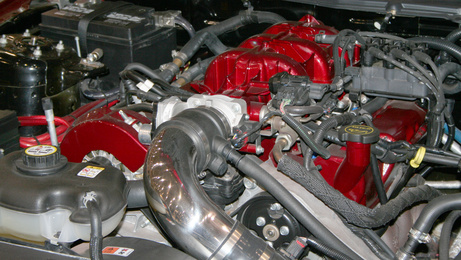
The fuel injector refers to an electrically operated gate that opens and injects fuel into the engine. A bad fuel injector can cause numerous engine problems and should be checked for proper function.
A bad fuel injector can fail in open position and send a flood of fuel into the exhaust system. This can lead to failure of the catalytic converter and poor engine performance. A fuel injector with a leak at the o-ring seal or in the body can also produce an air vacuum leak inside the manifold, resulting in a poor combustion mixture ratio in the engine.
Fuel injectors can be checked for proper function by turning on the engine and listening for a distinct clicking sound, which should be produced by each injector. If no clicking sound is apparent from one injector, it is likely bad and requires replacement.
If all fuel injectors “click,” then the operator may perform an Ohm meter test. Ohm meters refer to devices used to measure the resistance across an injector’s terminals. Once the vehicle is turned off, the Ohm meter can be attached to the fuel injector wiring. If resistance does not meet the fuel injector’s specifications as stated in the manual for that vehicle, the injector should be replaced.